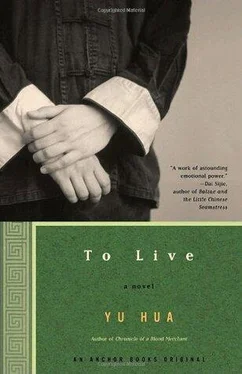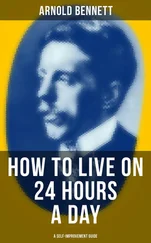12 Yu Hua’s stories of this period have been widely anthologized and are also available in Jing Wang (editor), China’s Avant-garde Fiction: An Anthology (Durham, N.C.: Duke University Press, 1998) and David Der-wei Wang (editor), Running Wild: New Chinese Writers (New York: Columbia University Press, 1994).
13 Screaming in the Drizzle was published in Taiwan under the alternate title Screams and Drizzle ( Huhuan yu xiyu ).
14 Both novels were published in book form in 1993. The current translation of To Live is based on the revised edition that appeared in Yu Hua’s 1994 Collected Works of Yu Hua Volume III.
15 Zeng Jingchao (interview), “Explaining To Live: Zhang Yimou on To Live ” (Gei huozhe yige shuofa: Zhang Yimou tan Huozhe ), p. 2 in Lifetimes: The Film Novel ( Huozhe: Dianying xiaoshuo ) by Sun Hua, Hanguang Publishing, Taipei 1994.
16 “To Live Is the Sole Requirement of Life: In Dialogue with Book Review Weekly Reporter Wang Wei,” p. 219 in Can I Believe in Myself? Selection of Random Essays ( Wo nengfou xiangxin ziji: Yu Hua suibi xuan ) by Yu, Renmin Ribao Chuban She, Beijing 1998.
TRANSLATOR’S ACKNOWLEDGMENTS
There are a number of individuals who have contributed their time and hard work to help make this project a reality. Thanks to my family and friends for all of their support over the years, to Yu Hua for allowing me to translate his novel and to Xudong Zhang, not only for his early encouragement, but also for initially putting me in touch with the author. Howard Goldblatt, Peter Li and Joshua Tanzer all read various versions of the manuscript and offered thoughtful comments and suggestions. I was grateful to work with John Siciliano and Katherine Bidwell during the final stages of editing. It was their literary sensitivity and editorial sensibilities that helped shape the final text. Thanks also go to Ha Jin, Perry Link, Tomi Suzuki, LuAnn Walther, the Department of Asian Languages and Cultures at Rutgers University, the Department of East Asian Languages and Cultures at Columbia University and especially David Der-wei Wang for his many years of unfailing support. I would like to dedicate this translation to the memory of Cao Jun, a great friend who taught me what it means to live.
In the introduction to the 1993 Chinese edition of To Live I wrote, “I once heard an American folk song entitled ‘Old Black Joe.’ The song was about an elderly black slave who experienced a life’s worth of hardships, including the passing of his entire family — yet he still looked upon the world with eyes of kindness, offering not the slightest complaint. After being so deeply moved by this song I decided to write my next novel — that novel was To Live. ”
For an author, the act of writing always begins with a smile, a gesture, a memory on the verge of being forgotten, a casual conversation or a bit of information hidden in the newspaper — it is these tiny pearl-like details that sometimes transform one’s fate and spread like waves into magnificent vistas and scenes. The writing of To Live was no exception. An American slave song with only the simplest lyrics grew into Fugui’s life — a life imbued with upheavals and suffering, but also tranquility and happiness.
Old Joe and Fugui are two men who could not be more different. They live in different countries and different eras; they are of different nationalities and cultural backgrounds; even their fundamental likes and dislikes are different, as is the color of their skin — yet sometimes they seem to be the same person. They are both so very human. Human experience, combined with the power of the imagination and understanding, can break down all barriers, enabling a person truly to understand that thing called fate at work in his life — not unlike the experience of simultaneously seeing one’s reflection in two different mirrors. Perhaps this is what makes literature magical; it is precisely this magic that enabled me — a reader on the other side of the world in China — to read the novels of Nathaniel Hawthorne, William Faulkner and Toni Morrison, and through them, to discover myself.
I would like to thank Ha Jin for recommending To Live for publication, my friend Michael Berry for translating it, my agent Joanne Wang for her diligence in placing it and my editors at Anchor Books for publishing, at long last, this English language edition.
Yu Hua was born in 1960 in Zhejiang, China. He finished high school during the Cultural Revolution and worked as a dentist for five years before beginning to write in 1983. He has published three novels, six collections of stories, and three collections of essays. His work has been translated into French, German, Italian, Dutch, Spanish, Japanese and Korean. In 2002 Yu Hua became the first Chinese writer to win the prestigious James Joyce Foundation Award. To Live was awarded Italy’s Premio Grinzane Cavour in 1998 and was named one of the last decade’s ten most influential books in China. Yu Hua lives in Beijing.
Michael Berry is an assistant professor of contemporary Chinese cultural studies at the University of California, Santa Barbara. He is the author of a forthcoming collection of interviews with Chinese filmmakers and the translator of Ye Zhaoyan’s Nanjing 1937: A Love Story and Chang Ta-chun’s Wild kids: Two Novels About Growing Up .












